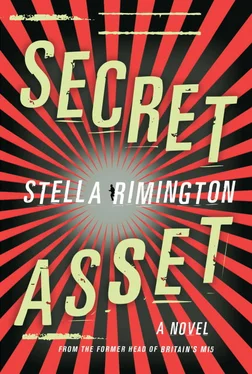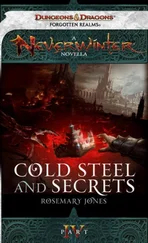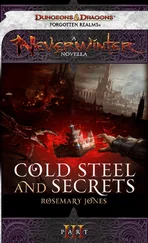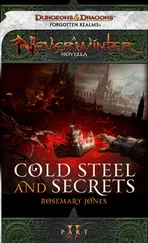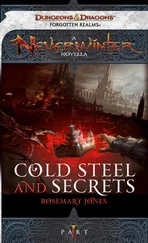“We think so,” said Wetherby. “The Installation of the Chancellor is going to be there, and then Encaenia.”
“Would the Chancellor be a target?”
“It’s difficult to predict the target. These are Islamic extremists who want to do as much damage as possible in the most visible way. I think a single assassination would not be their first choice.”
Chief Constable Ferris turned to Wetherby. “Do we know if they’re armed?”
Wetherby shook his head. “No, we don’t. I think it’s unlikely they would carry weapons, but we can’t rule it out. We do know they possess explosives—we found traces of fertiliser in a safe house they were using in Wokingham. Given that, and their affiliations, and recent history in this country, everything points to their trying to blow something up and kill as many people as they can. Particularly if they’re ‘important’ people,” Wetherby added, his tone acknowledging the distinction’s absurdity. “That’s even better.”
“So which ceremony are they likely to attack?”
“I’d say Encaenia rather than Installation is the likelier. Don’t misunderstand me: these people would be perfectly happy to kill the Chancellor, but it would be better from their point of view if they can kill a lot of other dignitaries as well.”
“Any sense of how they’ll do it?” the Chief Constable asked, unable to mask his anxiety.
“I think there are two possibilities,” said Wetherby. “It could be a suicide bombing on foot, in which case at least one of them will have to get close to the procession, wearing some sort of apparatus. Or they’ll use a vehicle, which we think is more likely. We know they have a white Transit van and that the buyer was one of the three main suspects. He was particularly interested in its load capacity, apparently.” He looked at Matheson. “Your Special Branch have all the details, including the original plate numbers, though I’m sure they’ve changed them.”
Matheson nodded and pointed to the blank monitors on the wall. “We’re rigging some temporary video to cover the target area as well as we can. We’re using fixed cameras so no one can duck them as they rotate. We expect to have them working in the next half hour.
“Sniffer dogs have come in from Reading and are checking the building for explosives. The handlers are there now. It’s going to take a while: I’ve told them to be extra careful. In addition, there are library stacks from the Bodleian that run underground right next to the Sheldonian. They’re serviced by a kind of antique train that runs from the New Bodleian across the street to the Old Library, and then on again to the Radcliffe Camera.” He tracked the train’s path with his pointer on the projector screen.
“Do many people know this railway’s there?” asked Liz.
Matheson shrugged. “Most people walking through the courtyard wouldn’t have a clue that there’s a subterranean world beneath them. On the other hand, every Oxford mystery story from Inspector Morse back to Michael Innes seems to have an underground finale set beneath the Bodleian. If that’s what they’re planning, we’ll stop them.”
“I doubt they are,” said Wetherby, with a shake of his head. “From what you say, it’s too obvious, but I’m glad you’re checking anyway.”
The head of Oxford’s Special Branch spoke up. “There was a bit of a hitch with the photographs you sent, but we’ve got copies now. They’re being distributed to all the men in the area.”
He passed copies to Wetherby, who looked at them, then passed them on to Dave and Liz. Rashid looked terribly young, thought Liz. As young as Marzipan.
“Every armed response unit in the Thames Valley has been called in,” said Ferris next to Wetherby. “And there will be armed officers all along the route.”
“We’re also placing four sharpshooters up high as well, with sniper rifles,” Matheson said, putting the pointer directly on the Sheldonian. “One here in the cupola.”
Liz remembered the stunning view from her tourist’s visit to the top with Peggy.
“Another here,” he said, pointing to the Bodleian, “to cover the courtyard between the Clarendon Building and the Sheldonian. And two on Broad Street, one facing east from the top of the Blackwell’s music shop. The other facing west from the same position. We’ll also have a dozen Special Branch officers in plain clothes mingling with the spectators. All of them will be armed.”
He went on. “We are looking for any van in the middle of town. We’ve briefed all the traffic wardens and we’ve got extra shifts of uniformed officers walking the streets. White vans are not exactly uncommon, and of course they may have painted the van a different colour. But we’re doing everything we can.”
After this recital of preventive measures, a silence filled the room. No one seemed eager to break it.
“So,” concluded Matheson at last, his face grim, “let’s all hope that we’re fully prepared.”
“And that the levees don’t break,” added Dave Armstrong under his breath.
Waking early, they ate a simple breakfast, then said prayers. Rashid watched Bashir and Khaled closely. He admired them for what they were about to do, and part of him wished he too was going to become a martyr that day in the struggle against the enemies of Islam.
Mine is the more difficult part, he thought. I will not have my reward yet. But he took comfort from the fact he would still be fighting for Islam. He knew what he had to do and afterwards where he had to go. He would be contacted, he had been told, and taken to Pakistan to join the Imam at his madrasa and then he would truly face death in another operation. He would have liked to be able to go home first, see his parents and look after his sister, Yasmina, but he knew that was not possible. The police were looking for him.
As the three of them squeezed into the front seat of the van, Bashir reluctantly gave Rashid a new pay-as-you-go mobile he had bought in Didcot, walking the mile to the new shopping centre on the main road, up from the station. “You are to use this once, and only once,” he instructed the small, younger man. “To ring me as we have planned.”
Bashir had consulted the map carefully and drove to Oxford on smaller roads, eschewing the A34, since it would be an easy route to seal off. He drove through the farmland between Abingdon and Oxford, then came down Cumnor Hill and into the city from the west. He followed the tortuous one-way system and parked in the quiet central neighbourhood of Jericho, once home to the printers of the University Press, its small brick houses now lived in by well-off young families.
Bashir found himself remembering where it had all begun, many thousands of miles away. He had met the Englishman in the marketplace in Lahore—the man had popped his head out of a shop as Bashir passed and said casually, “Do you speak Urdu? Can you help translate for me?” Bashir was fluent in Urdu—his parents had spoken it at home in Wolverhampton—and he helped the man negotiate the purchase of one hundred embroidered rugs from Kashmir.
Afterwards they had had coffee together, where the Englishman explained that he worked for an import-export firm in Dubai (which explained the size of the rug order) and was in Lahore on a three-month buying trip. Unfamiliarity with the language was making his task harder; would Bashir by any chance be willing to help? He would be paid of course—a figure was mentioned that made Bashir’s eyes blink. Flattered, intrigued (though already a little wary), Bashir had agreed.
On the surface their relationship had been strictly professional, though when the haggling in the market was done each day and they retreated to a café for refreshment, their conversation ranged through politics and religion. The Englishman had been friendly, outgoing and outspoken to the point of indiscretion.
Читать дальше
